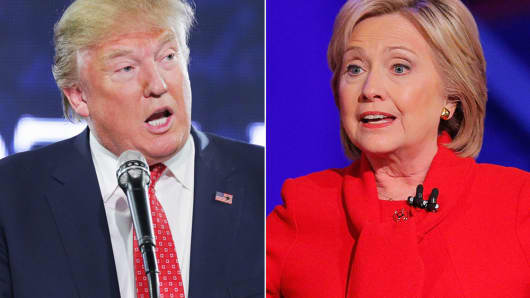As a singularly unloved candidate, Clinton has known from the outset that her only path to the presidency involved convincing voters whose passions lie elsewhere of her acceptability. Her long record in the public eye, and her willingness to shift positions with the political winds, has given almost everyone looking for a straw to clutch some reason to hope that their favorite Hillary persona is the one that would emerge to govern.
Trump, on the other hand, has given Sigh-OK voters very little reassurance. For months, we have argued that Trump needs to provide personnel announcements and policy details capable of convincing skeptical Republicans that he plans to govern as a Republican. Newt Gingrich, one of Trump's biggest boosters, has made numerous public calls for him to begin a series of substantive speeches.
So far, Trump has made two serious scripted presentations, both on foreign policy: One to AIPAC in March, and one last week at the Center for National Interest. While those speeches represent a start, Trump needs to provide far more guidance to those asking: "Why should those who question your innate greatness nevertheless conclude that you will be an acceptable President?"
We have never been bashful about our own preferences. We continue to believe that Cruz's passion and moral clarity, his fidelity to the nation's constitutional underpinnings, and his views on national security, foreign affairs, and economic growth would make him an excellent president; our skepticism about Trump's performance in each of these areas lead us to doubt his potential for such excellence.






